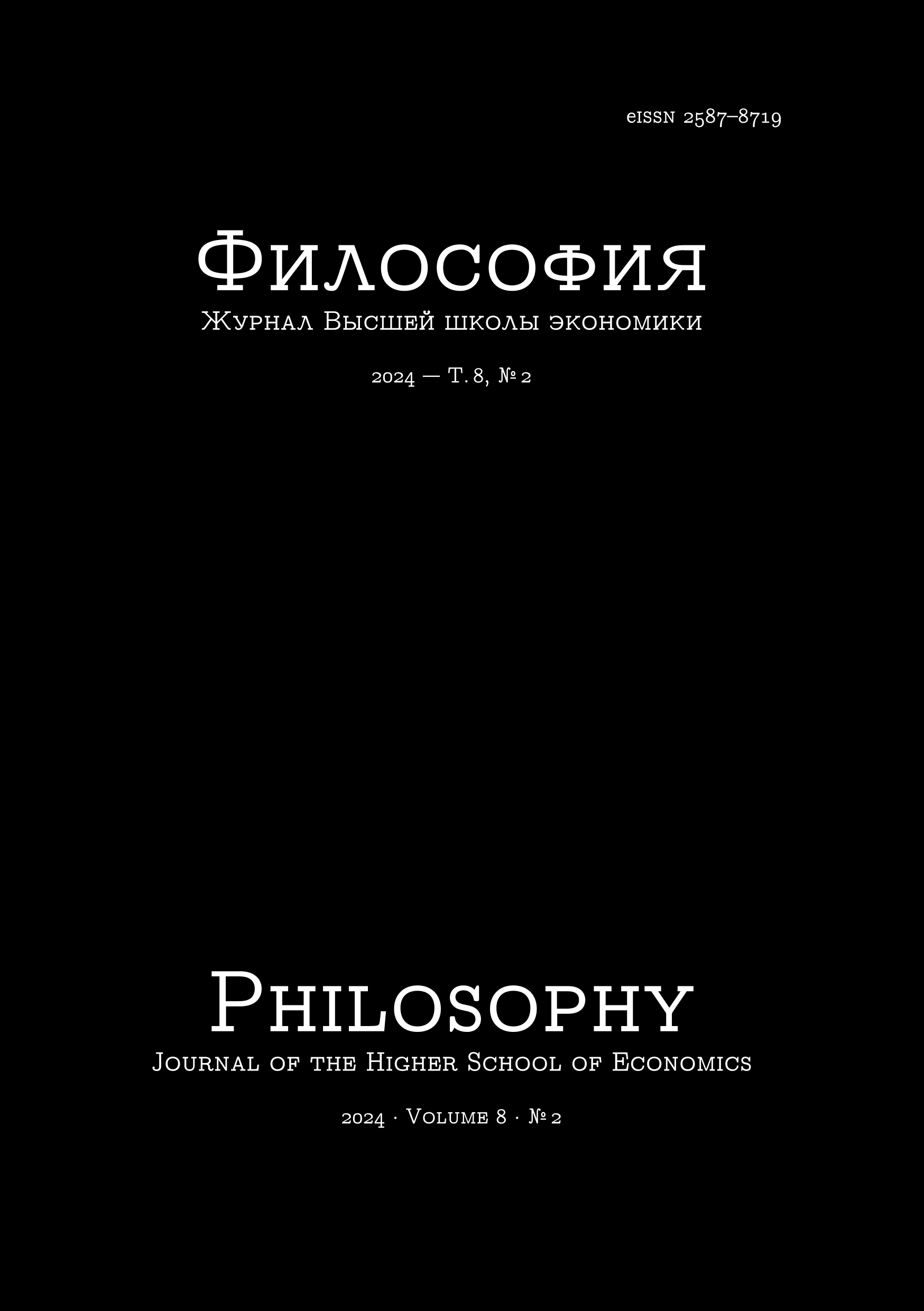The Relationship Between the Concept of Expression and the Theory of Signs in Deleuze
Abstract
In the proposed article, two concepts will be outlined — the concept of expression and the concept of signs, based on Gilles Deleuze and his understanding of Spinoza. The concept of expression implies two types of expression at once, direct and indirect, at the intersection of which there is one special exception — man. The latter falls out of the general order of expression. In the human mind, these two types of expression contradict each other. Indirect expression is given to a person in the form of vague signs that incline to one of two decisions: either to fully integrate into the order of direct expression and reduce one's life to pure actuality (and become like any other thing), or to bet on the special human existence, full of signs, without trying to decode, understand or resolve them. In addition, the author suggests a systematization of all possible signs used by Deleuze throughout his work in the form of five invariants that occur in different combinations in his texts: indicative, love, abstract, imperative and a special sign — event. The author argues that, despite the fact that sometimes Deleuze refers to events as signs and vice versa, we can distinguish them by their meaning for human beings — signs lead a person to actual existence by destroying any patterns and multiplying endless simulacra, while events imply the assertion of incompossible worlds as constantly adjusting to actual reality in the past and future. The placement of signs and events is the same — indirect expression from other things that appears in front of our minds in the form of a problem, task or question; however, the meaning of this expression is different, and therefore the very division between the sign and the event turns out to be rather functional than ontological.
Downloads
Copyright (c) 2024 Philosophy Journal of the Higher School of Economics

This work is licensed under a Creative Commons Attribution-NonCommercial 4.0 International License.






